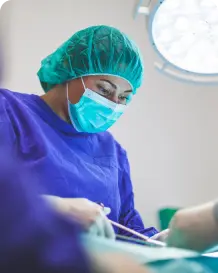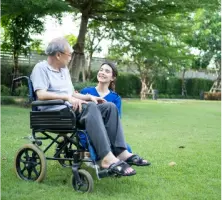Shoulder Arthroscopy Surgery in Bangalore
Shoulder arthroscopy is a minimally invasive surgical technique that allows the Orthopedic surgeon to diagnose and treat various shoulder conditions by providing a clear view of the joint internally. In this procedure, an arthrosc... Shoulder arthroscopy is a minimally invasive surgical technique that allows the Orthopedic surgeon to diagnose and treat various shoulder conditions by providing a clear view of the joint internally. In this procedure, an arthroscope is inserted into the shoulder joint through a tiny incision. An arthroscope is a fiber-optic instrument that has a light source, and a video camera that is connected to a monitor. The surgeon can use the device to determine the extent or type of injury and correct the defect if necessary. With this procedure, patients recover sooner and get back to their regular activities within a short duration when compared to traditional surgery. Read more
Happy patients
 50+
50+
Expert surgeons
Personal Assistance







